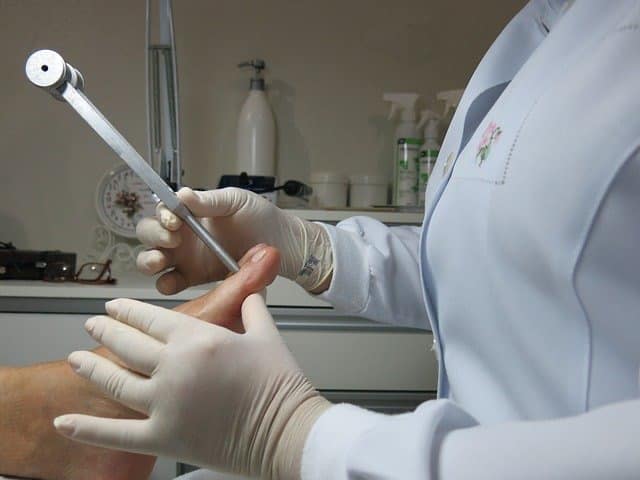Did you know that the month of April is National Foot Health Awareness Month? Feet are an important part of your body. They are surprisingly complex with each foot containing 26 bones.
Like anything related to your body, feet are affected by aging. As one ages, their feet become wider and flatter. Bones and joints of your feet are left to wear and tear as the cushioning naturally wears down on your feet. Balance, mobility, and the overall function of feet in elderly adults can be impaired by a small injury.
Foot problems should be taken care of before it affects the overall health. A problem in the feet can work its way up to other parts of the body. This could lead to a surge of health issues that could have many ramifications.
We have some basic foot care tips to reduce the health-related issues caused by foot problems.
WEAR PROPER SHOES
Avoid wearing shoes that are either too big or too small. In addition to this influencing your comfort level, it can rub and cause blisters and additional ailments of the foot. Senior adults should not wear heels higher than one inch and footwear that supports the arch type, ankle, and foot width.
Do not wear footwear that can rub or slide around your heel as you walk. This can create blisters that turn into severe sores. Always try on shoes before you purchase them so that they are a good fit.
HAVE CLEAN FEET
Good hygiene of the feet is important in preventing viral, fungal, and even bacterial infections. Baths and showers are often lessened for elderly adults. We suggest even adding a simple wipe down of the feet with warm soapy water and a clean washcloth.
Applying a lotion to the feet after they have been washed and dried can help prevent cracking. When skin gets dry and is not moisturized, it can lead to open foot sores. Lotion will help keep moisture in the feet.
PEDICURES ARE IMPORTANT
An additional step in taking care of feet is by keeping toenails trimmed. Overgrown toenails can be painful and interfere with stability in walking. If you are unable to trim the toenails see a podiatrist. Podiatrists often offer this service to their patients.
KEEP AN EYE OUT FOR SORES
Bedsores often take place on the heels of feet due to pressure and skin irritation from seniors who spend a majority of their time in a chair or bed. One way to prevent this from occurring is by making sure the ankles are propped up where they are not touching anything.
KEEP THE BLOOD CIRCULATING
A decrease in blood circulation to the feet often happens as you age. Many seniors suffer from diabetes and illnesses that reduce being mobile. Because of this immobility, circulation is often reduced in the feet and lower legs. This begins a dangerous situation like blood clots. Elevating the feet when at rest, foot massages, and seeking advice from a doctor is essential for improving circulation in senior’s feet.
TAKE CARE OF PAIN
If your feet or the feet of someone you take care of are in pain, you should seek a podiatrist or doctor as soon as possible. Pain in the feet can often be the beginning symptoms of illnesses like diabetic neuropathy or arthritis. Pain in the feet would include feet that are numb, stiff, inflamed, or tingling.
WHEN IN DOUBT, SEE A DOCTOR
A doctor or podiatrist can be of help for common foot ailments like corns, calluses, and bunions. These are often overlooked in senior feet, but they shouldn’t be. By seeking medical professionals they can recommend and treat issues of the feet and toenails.

